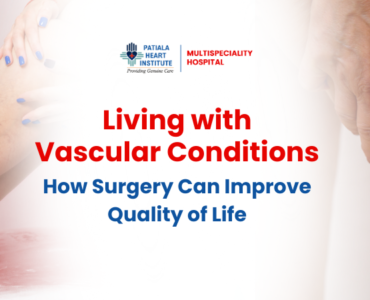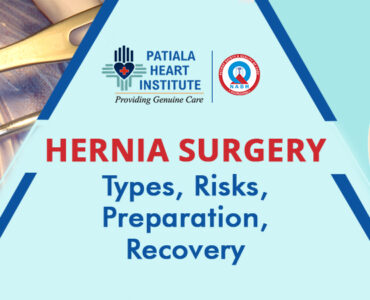Hernias are common medical conditions when an organ or tissue protrudes through a weak spot in the surrounding muscle or connective tissue. While many hernias are relatively harmless and can be managed with lifestyle changes or non-surgical treatments, some can become complicated and require immediate medical attention. Understanding when to see a doctor for a hernia is crucial to prevent serious health issues. In this blog, we’ll explore the types of hernias, the symptoms of complicated hernias, and the importance of timely medical intervention.
Types of Hernias
Hernias can occur in various parts of the body, but the most common types include:
- Inguinal Hernia: Occurs in the groin area when the intestine or bladder protrudes through the abdominal wall or into the inguinal canal.
- Femoral Hernia: Similar to an inguinal hernia but occurs lower in the groin, more common in women.
- Umbilical Hernia: Occurs near the belly button when part of the intestine protrudes through the abdominal wall.
- Hiatal Hernia: Occurs when part of the stomach pushes up through the diaphragm into the chest cavity.
- Incisional Hernia: Occurs at the site of a previous surgical incision in the abdomen.
While these hernias can be uncomfortable, they are not typically life-threatening. However, complications can arise if the hernia becomes strangulated or obstructed.
Symptoms of a Hernia
Before diving into the signs of a complicated hernia, it’s important to recognize the general symptoms of a hernia. Common symptoms include:
- A visible bulge or lump in the affected area
- Pain or discomfort, especially when bending over, coughing, or lifting
- A feeling of heaviness or pressure in the abdomen
- Weakness or a burning sensation at the site of the hernia
These symptoms can vary depending on the type and severity of the hernia. Sometimes, hernias may be asymptomatic and discovered incidentally during a physical exam.
When to Seek Medical Attention: Signs of a Complicated Hernia
A hernia becomes complicated when it leads to additional health issues such as strangulation or obstruction. Recognizing the signs of these complications is vital for seeking timely medical intervention. Here are the key signs to watch for:
1. Sudden and Severe Pain
One of the most alarming signs of a complicated hernia is sudden and severe pain at the site of the hernia. This pain may be constant or come and go, but it often intensifies over time. It may also radiate to other parts of the abdomen or back. Severe pain is a red flag that should not be ignored, as it could indicate strangulation or obstruction of the hernia.
2. Nausea and Vomiting
Nausea and vomiting are common symptoms of a complicated hernia, particularly if the hernia has become obstructed. When a portion of the intestine becomes trapped in the hernia, it can lead to a blockage that prevents food and liquids from passing through the digestive tract. This can result in persistent nausea, vomiting, and a lack of appetite.
3. Inability to Pass Gas or Have a Bowel Movement
An obstructed hernia can also lead to an inability to pass gas or have a bowel movement. This occurs because the trapped portion of the intestine blocks the passage of stool and gas through the digestive tract. If you experience a sudden and complete inability to pass gas or have a bowel movement, it’s crucial to seek medical attention immediately.
4. Redness and Swelling
Redness and swelling around the hernia site can indicate inflammation or infection. If the hernia becomes strangulated, the trapped tissue can lose its blood supply, leading to tissue death and infection. This can cause the skin over the hernia to become red, warm, and swollen. A doctor should promptly evaluate any changes in the appearance of the hernia.
5. Fever
A fever can be a sign of infection, which may occur if a hernia is strangulated. The body’s immune response to infection often includes a fever, which can range from mild to high. If you develop a fever and other symptoms of a complicated hernia, it’s important to seek medical care immediately.
6. Rapid Heart Rate
A rapid heart rate, or tachycardia, can signify distress in the body. It may occur in response to severe pain, infection, or other hernia complications. If you notice a sudden increase in your heart rate and other symptoms, getting medical help immediately is essential.
Diagnosing a Complicated Hernia
When you visit a doctor for symptoms of a complicated hernia, they will perform a thorough physical examination and may order additional tests to confirm the diagnosis. These tests may include:
- Imaging Studies: Ultrasound, CT scans, or MRI may be used to visualize the hernia and assess its severity.
- Blood Tests: Blood tests can help identify signs of infection or other complications.
- X-rays: X-rays may be used to evaluate the presence of bowel obstruction.
Based on the results of these tests, the doctor will determine the best course of action for treatment.
Treatment Options for Complicated Hernias
Treatment for a complicated hernia typically involves surgical intervention. The specific type of surgery will depend on the location and severity of the hernia and the patient’s overall health. Common surgical procedures for hernias include:
1. Herniorrhaphy (Open Surgery)
Herniorrhaphy, or open hernia repair, involves an incision over the hernia site and pushing the protruding tissue back into place. The weakened muscle or tissue is then reinforced with sutures or a synthetic mesh to prevent a recurrence. Open surgery is often used for larger or more complex hernias.
2. Laparoscopic Surgery
Laparoscopic hernia surgery is a minimally invasive technique that involves making several small incisions in the abdomen. A laparoscope (a thin, flexible tube with a camera) is inserted through one of the incisions, allowing the surgeon to view the hernia on a monitor. Surgical instruments are inserted through the other incisions to repair the hernia. The benefits of laparoscopic hernia surgery typically result in less pain and a quicker recovery compared to open surgery.
3. Emergency Surgery
In cases of strangulated or obstructed hernias, emergency surgery is required to restore blood flow to the trapped tissue and relieve the obstruction. This is a critical procedure that must be performed promptly to prevent tissue death and other serious complications.
Preventing Hernia Complications
While it’s not always possible to prevent hernias, there are steps you can take to reduce your risk of complications:
1. Seek Early Treatment
If you suspect you have a hernia, seek medical attention early. Early diagnosis and treatment can help prevent complications and improve outcomes.
2. Follow Post-Surgery Instructions
If you’ve had hernia surgery, follow your doctor’s post-surgery instructions carefully. This may include avoiding heavy lifting, following a specific diet, and attending follow-up appointments to monitor your recovery.
3. Maintain a Healthy Weight
Maintaining a healthy weight can reduce the strain on your abdominal muscles and decrease the risk of hernia complications. Aim for a balanced diet and regular exercise to keep your weight in check.
4. Avoid Straining
Avoid activities that cause excessive straining, such as heavy lifting or chronic coughing. If you have a chronic cough, seek treatment to manage it effectively.
5. Strengthen Your Core Muscles
Strengthening your core muscles can help support your abdominal wall and reduce the risk of hernias. Incorporate core-strengthening exercises into your fitness routine, but consult with a healthcare professional if you have an existing hernia.
Conclusion
Hernias are common conditions that can range from mild to severe. Recognizing the signs of a complicated hernia and seeking timely medical attention is crucial to preventing serious health issues. Suppose you experience sudden and severe pain, nausea, vomiting, inability to pass gas or have a bowel movement, redness, swelling, fever, or changes in heart rate. In that case, it’s essential to see a doctor immediately. Early diagnosis and treatment can improve outcomes and prevent complications. You can manage hernias effectively and safely by staying informed and proactive about your health. Looking for a laparoscopic surgery specialist in Patiala? Contact us today to schedule an appointment with the best general and laparoscopic surgery doctor.







